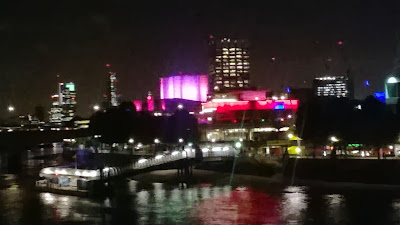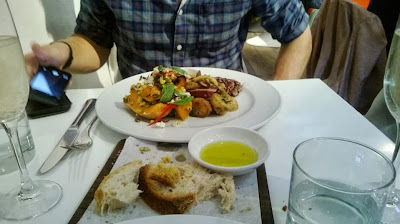If you’ve read my last few posts, you’ll know that judging
by the first instalments of my reviews of Arcadia books I had high expectations
for the next book they sent me. I went from class and race struggles in
Pakistan, to a similar tale of the power of human universality, but this time
on a tiny island in the South Pacific at the end of World War Two.
I was surprised to find out that Under The Sun is Justin Kerr-Smiley’s only book. Given the
creativity and elo quence of the language, it seemed to me like a real piece of
literature, not just a commercial story. However, when I looked into why the
book was written I wasn’t surprised by Kerr-Smiley’s interest in the ability of
humankind to reconcile men of two nations pitted against each other into
friendship. His combination of this with the knowledge of samurais and Japanese
culture which he inherited from his Grandfather equates to an equally moving,
emotive and enriching novel.
The novel is based mainly in the perspectives of the two
opposed soldiers: the British pilot Strickland and the Japanese captain Hayama.
Having rescued Strickland from drowning in the South Pacific, Hayama takes him
back to the secret island occupied by the Japanese with the intention of
torturing him for information and eventual murder. However, once Hayama
realises he can’t bring himself to murder an innocent man, the two remain on
the island together and forge an unexpected friendship – the island becomes a
parallel haven in the midst of a world consumed by war and murder.
The switching of perspective between the two men remains
flawless throughout and what really struck me about it was the disparity in
content, memories, images etc, but the continuity in priorities, trains of
thought and desires. This similarity between the two seemingly opposite
characters becomes clear to the reader first through the direct insight into
their minds, meaning once the friendship begins to blossom and the men
themselves discover how alike they really are, the reader is already
emotionally involved, deepening the emotional attachment we feel for them as a
pair.
Another way in which we are drawn into a more profound
relationship with the characters is through the way they teach each other about
their own cultures. I’ve mentioned before that I love anything that teaches me
about a new culture or society, and here I was learning at the same time as the
characters– something that really enhanced my interest in the subject and the
development of their relationship. In learning about the two men’s faiths,
education, families, backgrounds the reader can compare the two and look for
their differences and similarities – the fact that this wasn’t thrown in my
face but that I was allowed to draw the conclusions of my own accord was a real
highlight, a homage to the abilities of the reader to draw from inference,
which you don’t get in so many books nowadays.
There is a huge amount to say about this book, I could go on
about its style, language and plot line and the way these are brought together
to create such a moving novel, for days, but I won’t. Instead, I’ll do what
Justin Kerr-Smiley has so skilfully done, and leave it up to the reader to
create their own understanding of what the book is about. A novel that studies
the simultaneously personal and universal reactions of single people to war and
the obligations it brings with it, Under
the Sun uses two completely contrasting characters to outline the paradox
between the concept of enemies and allies and the collective love that humans
can’t help but feel for each other, even in the face of ultimate tragedy. Not
only did this book compel me to view the war from a new and unique perspective,
it also made me consider the personal tragedies beneath the generalised blanket
of ‘wartime’ and understand the heartbreak of war in a new light.
Read it now: Get it here






























